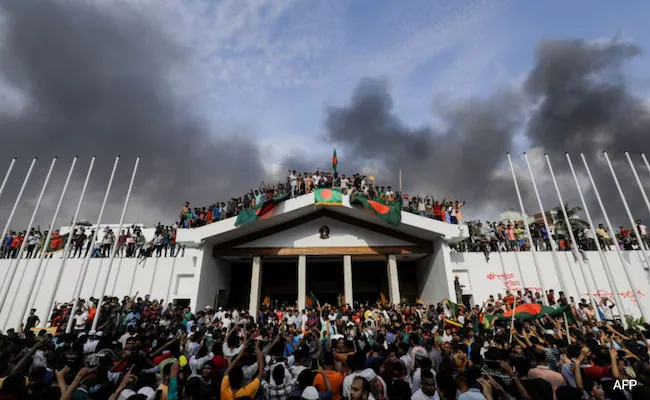Dhaka: As the world gears up to welcome the new year 2025, a different atmosphere prevails in Bangladesh, India’s neighboring nation. Reports suggest that today, December 31, Bangladesh may announce the abolition of its 1972 constitution, established during Sheikh Mujibur Rahman’s era. Additionally, the positions of President and Army Chief may also be dissolved. The protests against Sheikh Hasina’s government in July, which led to her resignation and subsequent move to India, may be officially recognized as a revolution akin to the Iranian Revolution.
The student-led organization “Students Against Discrimination” is reportedly preparing to declare a new republic. However, it remains unclear whether Bangladesh will emerge as an Islamic state or a secular republic. Currently, the nation faces significant instability, which may deepen further with the removal of pivotal constitutional positions. For neighboring countries like India, this situation poses a challenge, as it raises the question: whom to engage with in Bangladesh? There is no elected government in place, and the interim administration is led by Nobel laureate economist Muhammad Yunus, who has been criticized for his alignment with radical elements, a concern shared by India and other nations, including the United States.
Student leader Hasnat Abdullah has strongly opposed the 1972 constitution, calling it a “Mujibist law” that must be abolished and buried. He has also voiced his animosity toward India, stating that the constitution allowed India to interfere in Bangladesh. Abdullah announced that a declaration about the future vision for Bangladesh will be made this afternoon at Dhaka’s Central Shaheed Minar.
There is speculation that Pakistan is behind the growing radical influence in Bangladesh. The leaders of the so-called student revolution are reportedly in constant contact with the Pakistani embassy. Moreover, recent meetings between Muhammad Yunus and Pakistan’s Prime Minister Shahbaz Sharif during the D-8 Islamic Nations Organization conference have further fueled concerns.
Bangladesh has also increased trade ties with Pakistan, with goods now arriving directly at the Chittagong Port without physical inspection requirements. This growing collaboration between the two nations has raised alarms in India and other regional powers.
As Bangladesh braces for a critical announcement, the region watches closely, anticipating the potential ramifications of this historic moment.




